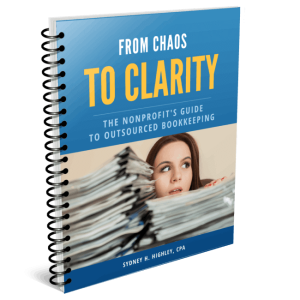
What You Need to Know About Nonprofit Challenges in 99 Words
Nonprofits are at the heart of many efforts to address societal needs, but the journey is rarely smooth. Despite their noble missions, nonprofits face many complex challenges that can hinder their ability to operate effectively. From financial instability to legal complexities, nonprofits must juggle many responsibilities to thrive. This section will explore some of the most pressing and complex nonprofit challenges—financial, accounting, and legal—and offer solutions to help organizations navigate these obstacles.
Want more? Keep reading…
Table of Contents
ToggleFinancial Nonprofit Challenges
Managing finances is a critical aspect of running a nonprofit, and it comes with its own set of unique hurdles, including:
Securing Sustainable Funding
One of the most daunting nonprofit challenges is obtaining reliable, long-term funding. Nonprofits often depend on external sources like grants, donations, and corporate sponsorships, which can be unpredictable and competitive.
This pressure to secure ongoing financial support can divert time and resources from the organization’s core mission.
Solution:
Diversifying funding streams is critical. This means exploring alternative revenue sources such as fee-for-service models, corporate partnerships, or crowdfunding campaigns.
Building strong relationships with donors and securing multi year grants can provide a more stable foundation. Engaging an outsourced accounting firm, which can provide expert financial advice and help manage diverse funding sources, can help nonprofits track and manage their finances more effectively.
Unpredictable Cash Flow
Nonprofits regularly experience fluctuations in cash flow, making it difficult to plan for the future or cover day-to-day operations. This is particularly challenging when large donations come in during specific times of the year, leaving gaps between funding cycles.
Solution: To combat this nonprofit challenge, nonprofits should create detailed cash flow forecasts and maintain a reserve fund for leaner periods. Establishing recurring donor programs can also help provide a steady income stream throughout the year.
Working with financial experts can ensure these strategies are implemented effectively and that organizations are prepared for any financial shortfalls.
Donor Restrictions
Another nonprofit challenge is navigating donor restrictions, which require organizations to use funds for specific purposes. While these restrictions are often well-meaning, they can create challenges in covering general operating costs, which are essential for running a nonprofit.
Solution: Transparency is critical. Nonprofits should clearly communicate with donors about the need for unrestricted funds for operational purposes. Offering donors the option to contribute to a general fund may also help.
Additionally, an outsourced accounting firm can assist in tracking and managing both restricted and unrestricted funds to ensure compliance.
Accounting Nonprofit Challenges
Dealing with nonprofit accounting can feel overwhelming. Let’s explore the common hurdles organizations face to help simplify and manage these essential financial tasks.
Complexity of Fund Accounting
Unlike for-profit businesses, nonprofits must use fund accounting, which separates revenue into different categories, such as unrestricted and restricted funds. The need to track and manage various revenue streams—each with its own set of rules—can make accounting far more complex.
Solution: Using specialized accounting software tailored for nonprofits can make fund accounting more manageable. Outsourcing accounting services can also ensure that nonprofit financial statements are prepared accurately, helping the organization comply with regulations and donor requirements.
Compliance and Financial Reporting
Nonprofits are held to strict reporting standards, including filing IRS Form 990 and other financial disclosures. These requirements ensure transparency, but the detailed reporting can be time-consuming and overwhelming for nonprofit staff.
Solution: Training internal staff on financial reporting best practices is essential to maintain compliance. Many organizations also benefit from hiring an outsourced accounting firm that specializes in nonprofit reporting. This can help ensure that all regulatory filings are completed on time and that financial data is presented clearly and accurately to stakeholders.
Grant Management
Managing grants presents challenges, especially when dealing with multiple funders, each with unique reporting requirements. Nonprofits must track how every dollar from each grant is spent, which can become burdensome as the number of grants grows.
Solution: A robust grant management system can simplify the process by organizing deadlines, reporting requirements, and expenditures. Nonprofits should also designate specific team members or external consultants to oversee grant compliance, ensuring no funds are misused or reporting deadlines are missed.
Legal Nonprifit Challenges
Navigating the legal nonprofit challenges can also be tricky. Here are some tips on how to handle these critical issues effectively.
Regulatory Compliance
Nonprofits must navigate a maze of legal regulations to maintain their tax-exempt status. This includes filing annual reports, adhering to state and federal laws, and ensuring they meet all charity registration requirements. Noncompliance can lead to fines, loss of tax-exempt status, or even legal action.
Solution: Regular legal audits, which can identify potential compliance issues and provide recommendations for improvement, and consultations with nonprofit legal experts are crucial. Staying up-to-date on regulatory changes ensures that the organization remains in compliance with state and federal laws. Outsourced accounting firms can also help nonprofits manage the financial reporting side of compliance, ensuring everything aligns with legal requirements.
Employment Law Compliance
Hiring employees, managing volunteers, and adhering to labor laws are all critical yet challenging aspects of running a nonprofit. Nonprofits may struggle with correctly classifying workers or managing payroll taxes, which can lead to legal complications.
Solution: Nonprofits should familiarize themselves with employment law or work with legal professionals who specialize in nonprofit labor issues. Clear documentation, regular payroll reviews, and training staff on HR best practices can prevent potential legal troubles. Collaborating with external financial experts can also ensure payroll and tax records are handled correctly.
Risk Management
Board governance, intellectual property, and liability issues are significant legal risks that nonprofits face. Missteps in any of these areas can lead to lawsuits or reputational damage. For instance, board members may not be aware of their legal responsibilities, leading to governance problems.
Solution: To mitigate these risks, nonprofits should invest in training their board members on governance best practices. Establishing strong legal protections for intellectual property and securing appropriate liability insurance are also important. Legal counsel and nonprofit financial professionals can help safeguard the organization against these risks.
Final Thoughts
Nonprofit challenges are multifaceted, spanning financial, accounting, and legal aspects. By addressing these hurdles head-on, nonprofits can build a stronger foundation for growth and sustainability. Implementing solutions like diversified funding, clear financial reporting, and staying compliant with legal obligations are crucial steps.
Contact Daily Balance today for expert help addressing these nonprofit challenges and ensuring your organization’s success.
Nonprofit Resources

About the Author
Syd Highley is a CPA and Managing Principal of Daily Balance, a nonprofit accounting firm located in Sacramento, CA. Offering virtual nonprofit bookkeeping services that take the place of an in-house accounting department, with the added benefits of financial audit representation and virtual CFO services, Highley empowers nonprofits to focus on their missions while saving up to 40% in accounting costs.






